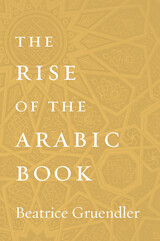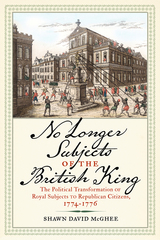
Beyond Market Value chronicles Annette Campbell-White’s remarkable life, from a childhood spent in remote mining camps throughout the British Commonwealth, where books created an imaginary home; to her early adulthood in London, where she first discovered a vocation as a book collector; to Silicon Valley, where she built a pioneering career as a formidable venture capitalist. She recalls the impulsive purchase of the first book in her collection, T. S. Eliot’s A Song for Simeon, and her pursuit of rare editions of all one hundred titles listed in Cyril Connolly’s The Modern Movement. Campbell-White’s collecting and career peaked in 2005, when she acquired the last of the Connolly titles and was first named to Forbes’ Midas List, the annual ranking of the most successful dealmakers in venture capital.
In 2007, out of concern for their preservation, Campbell-White rashly sold the Connolly titles she had spent more than twenty years assembling, leading to a new appreciation of what remained of her collection and, going forward, a broader focus on collecting modernist letters, manuscripts, and ephemera. Beyond Market Value is both a loving tribute to literary collecting and a telling account of the challenges of being a woman in the male-dominated world of finance.

In Jennifer Summit’s account, libraries are more than inert storehouses of written tradition; they are volatile spaces that actively shape the meanings and uses of books, reading, and the past. Considering the two-hundred-year period between 1431, which saw the foundation of Duke Humfrey’s famous library, and 1631, when the great antiquarian Sir Robert Cotton died, Memory’s Library revises the history of the modern library by focusing on its origins in medieval and early modern England.
Summit argues that the medieval sources that survive in English collections are the product of a Reformation and post-Reformation struggle to redefine the past by redefining the cultural place, function, and identity of libraries. By establishing the intellectual dynamism of English libraries during this crucial period of their development, Memory’s Library demonstrates how much current discussions about the future of libraries can gain by reexamining their past.

The little-known story of the sophisticated and vibrant Arabic book culture that flourished during the Middle Ages.
During the thirteenth century, Europe’s largest library owned fewer than 2,000 volumes. Libraries in the Arab world at the time had exponentially larger collections. Five libraries in Baghdad alone held between 200,000 and 1,000,000 books each, including multiple copies of standard works so that their many patrons could enjoy simultaneous access.
How did the Arabic codex become so popular during the Middle Ages, even as the well-established form languished in Europe? Beatrice Gruendler’s The Rise of the Arabic Book answers this question through in-depth stories of bookmakers and book collectors, stationers and librarians, scholars and poets of the ninth century.
The history of the book has been written with an outsize focus on Europe. The role books played in shaping the great literary cultures of the world beyond the West has been less known—until now. An internationally renowned expert in classical Arabic literature, Gruendler corrects this oversight and takes us into the rich literary milieu of early Arabic letters.
READERS
Browse our collection.
PUBLISHERS
See BiblioVault's publisher services.
STUDENT SERVICES
Files for college accessibility offices.
UChicago Accessibility Resources
home | accessibility | search | about | contact us
BiblioVault ® 2001 - 2024
The University of Chicago Press









